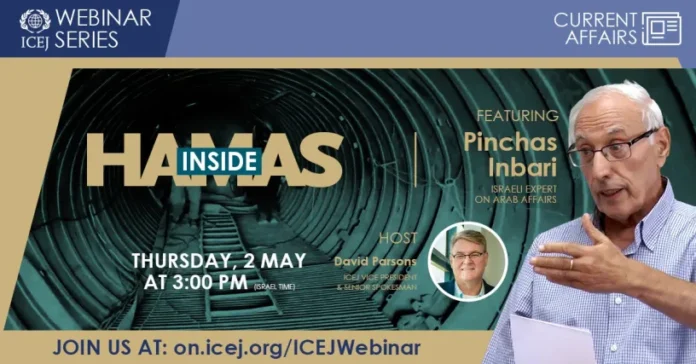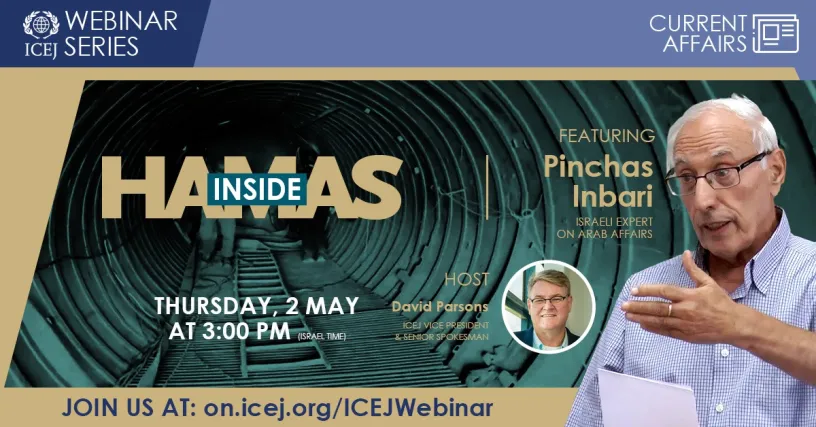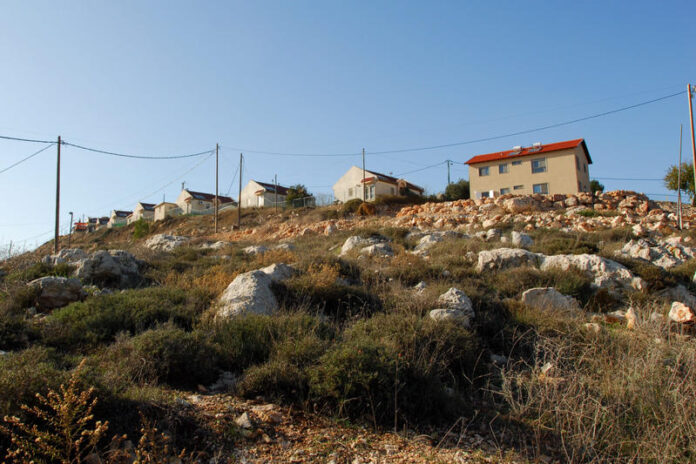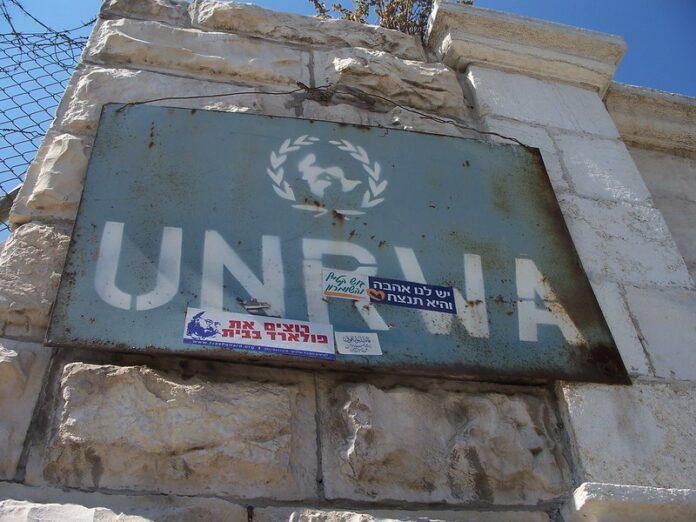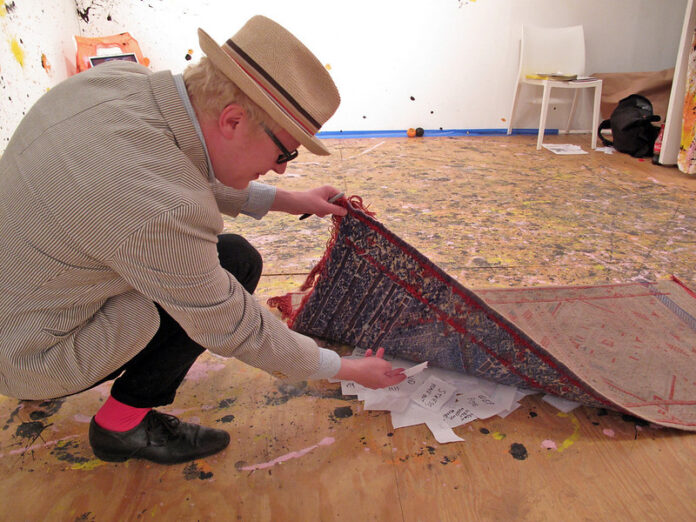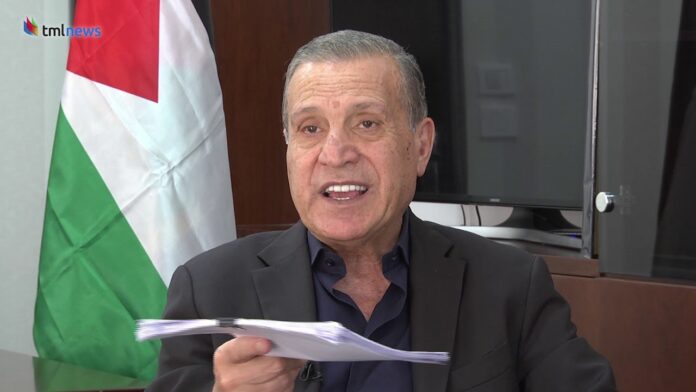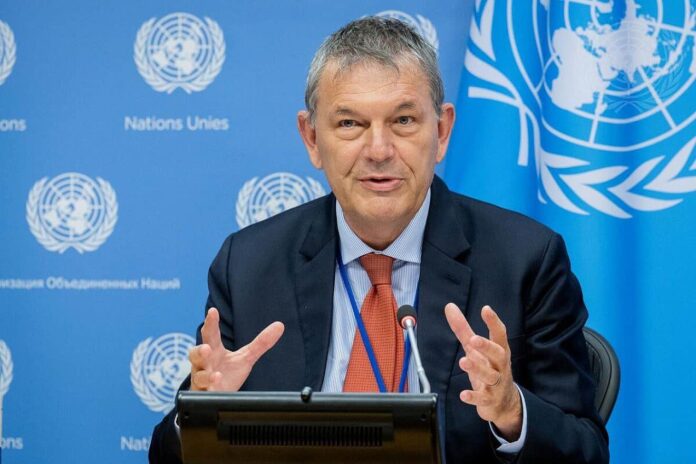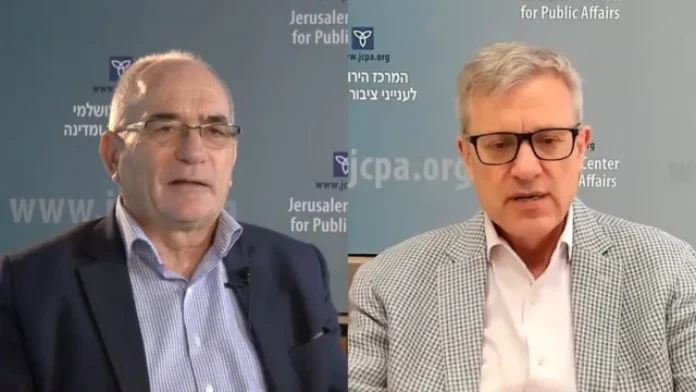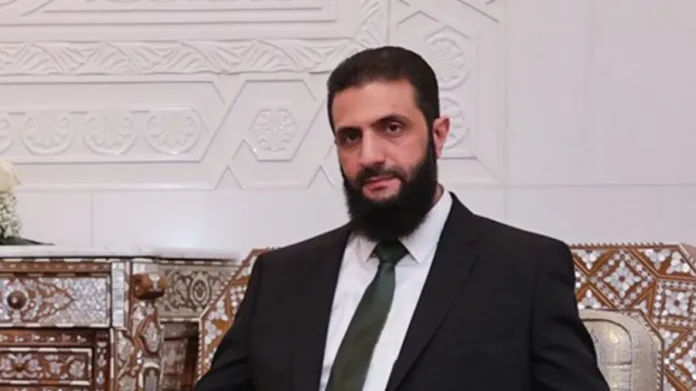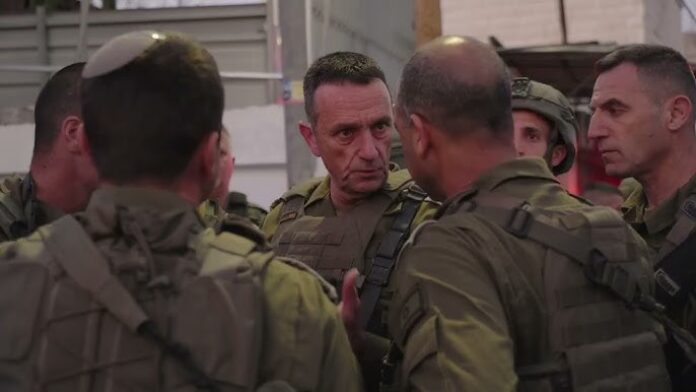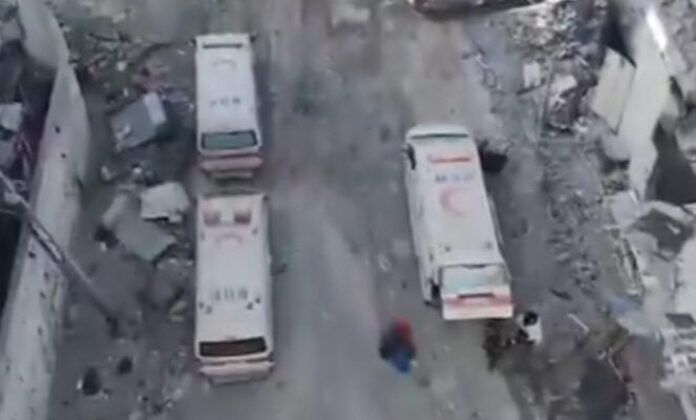inFOCUS: This issue assesses Iranian policy and the future of the Tehran regime, mostly from the American perspective. Give us an Israeli perspective, please.
Dr. Dan Diker: The chessboard is being reset in the Middle East and it is important to connect everything.

BG Yossi Kuperwasser: The situation is becoming more complicated; the Iranian regime faces challenges it has never faced before. First of all, the regime’s perception of itself and also the perception of the Iranian people of their regime is in shambles because it was proven that it cannot cause the kind of damage to Israel it proclaimed it could. It cannot defend itself and cannot defend its most strategic assets, including the nuclear program.
It was further proven that the Ring of Fire [Ed. Iranian proxy forces] that it has built around Israel is falling apart. It was not built well enough to withstand the Israeli reaction to an attack by one of the members – Hamas. And its economic situation is terrible, and Donald Trump is coming, and “maximum pressure” is going to be imposed again. And the people of Iran can’t stand the regime any more anyhow, regardless of anything else, because of the economic difficulties – which are, to some extent, the result of sanctions, but mostly have to do with the corruption and the ineffectiveness of the regime.
Its treatment of its own people is despicable; we have learned recently of the growing number of executions, including of women. So, from the point of view of the regime, the situation is extremely dangerous.
What is happening in Syria exacerbates the situation. It’s almost a doomsday scenario for Iran. And everybody understood. Everybody saw how weak the regime was. That’s why the opposition in Syria decided to go on the move.
So, if the question is whether the Iranian regime can fall, yes, the regime can fall.
iF: But there are two possibilities. One is immediate large-scale military offensive activity to try to shake off their enemies. The other is to collapse. Do you think there’s any possibility that Iran will say, “Look, if I’m going to go down, I’m going to go down and take Israel with me”?
Kuperwasser: There is such a possibility, but I think what they have to worry about more is the million people in the square in Tehran. Because if the people of Iran understand this is an opportunity that might never come again and if they decide to go on the move, then what can the regime do? With all the Basiji Guard and the Pasdaran and whatever they have, if the people go to the streets, it’s going to be very difficult.
And that’s exactly what’s happened in Syria. The Iranians were helpless. And it’s not that they don’t have forces over there. They had a lot of forces on the ground, but everybody was running away from confrontation. They lost their commanders and it was a very difficult situation.
But in the end, the possibility of people rising up at home is more dangerous than a military attack.
iF: Does Israel have good connections with the Iranian opposition? Is it able to be helpful to them?
Diker: Israel has had good relationships with the “oppositions” plural, because one of the major challenges in the Iranian opposition is the Iranian opposition itself. And there are so many oppositions within the opposition that it has become very difficult to help them coalesce around a centralized command structure, a centralized sort of government-in-waiting.
Israel has always maintained very strong relations with various leaders within the 88 or so million Iranians, 90 percent of whom reject the regime and have rejected the regime since the early to mid-1980s, when what had been known as a left-wing progressive and Islamic coalition became a massively extremist right-wing Islamist authoritarian regime – torturing everyone from political opponents to gays to women.
What we’ve seen recently with the Mahsa Amini hijab protest has been a massive re-energizing of the Iranian people in the streets. What we have noticed – the Jerusalem Center having strong relations with a number of senior opposition members – is this notion of coming together, which a former American intelligence analyst called “as difficult as herding cats.” This helps to create a sense of confidence in the people.
There are many regime members in Europe whom we’ve met in London. There are many opposition members in the United States. There is Reza Pahlavi. There are monarchists; far-left progressives; people that want a Federal Republic and for that republic to break up into its component parts of tribes, families, and clans within Iran – there are many, many, many minority communities within Iran. And then, I believe the majority of the Iranian people want to have a federal republic, but a united republic.
All of these issues have to be worked out. But as General Kuperwasser says, now is an ideal time because we know the expression, “The emperor has no clothes,” and now we can say, “The ayatollah is naked.” And that is true because many of the tentacles of the Iranian octopus have been cut off. The Hamas tentacle, cut off. The Hezbollah tentacle, cut off. The Houthis as we speak, are under attack by the Americans in the Red Sea area. Syria is gone.
It really leaves a great opportunity for the Iranian people, and they know the Israeli people are aligned in support of the need to change the regime. The challenge is to get the Americans on board. The major frustration of the Iranian opposition, whether in Europe or in Iran itself, is that American governments all have done more to stabilize the regime than they have to destabilize the regime. And now the regime by itself is destabilized and may provide an excellent opportunity to begin the process of regime change.
Ring of Fire
iF: Iran has spent all these years and a lot of money and a lot of weapons building its Ring of Fire, including something I want you both to address: For decades, Israel has watched in Gaza and Lebanon while these guys were building tunnels and missile factories, and more. Israel’s response to this over the years has been what you all call “mowing the grass.” You take out things and you take out people. I think October 7 tells you that “mowing the grass” was not the answer to the question. First of all, why wasn’t it? And secondly, now what comes after this?
Diker: One of the very painful lessons that Israel as a body politic learned and I think it assimilated, is that the October 7 moment proved beyond any shadow of a doubt that the conflict we face is religiously and ideologically driven by the Iranian-backed Hamas and its Hezbollah proxies. It even includes elements within the PLO as well as Palestinian Islamic Jihad and others.
This is not a territorial conflict. We are not witnessing a Palestinian-Israeli conflict over borders and territory. We are really facing jihad; we are facing Holy War, as Iran has reminded us time and time again since 1979, with the return of Grand Ayatollah Khomeini from Paris.
Israel, in its desperation for peace, thought that the PLO’s main faction, Fatah – which had been considered a more secular and even more “moderate” faction of the PLO – would be a partner for some sort of historic border compromise between Israel and the Palestinian Authority (PA). Of course, the PA is really just an artificial subset of the PLO.
Those assumptions were incorrect. In fact, there’s really very little difference strategically between the commitment of the PLO and its Hamas opponents to rid the Middle East of Israel – and Iran’s determination to destroy Israel. “Death to Israel,” “Death to America,” is all being driven by the Iranian regime. That was one of the major lessons of October 7.
The second lesson is that the October 7 assault was as much an Iranian assault on the US and the West as it was on Israel. This is because it sees Israel as an expression of, or a branch office of, the United States in the Islamic Middle East. This war that we are facing is a war on the United States-led Western alliance. And Israel is part of that alliance.
iF: Kuper, if you would talk about the two things that people here, my readers, my people don’t know, and that is Iran’s inroads into Jordan and the West Bank. People know about Syria, they know about Hezbollah, but Iran has been financing and arming people in Judea and Samaria, and the Jordanian King must sleep with both eyes open every night.
Kuperwasser: Yes, he does. Let me start with what you asked in the previous question, and I’ll come back to that.
What happened to us? As a matter of fact, it’s an issue of numbers and demography. We don’t have enough people. We are a small country, and because of that we were in a state where you know something, but you prefer to ignore it because you don’t know what to do about it. It is a psychological issue.
iF: There are things you don’t want to know, so, your head says, “I don’t want to know that.”
Kuperwasser: Yes. We knew that we were going to sleep every night along the border with Gaza, and on the other side there was a big division of people that could launch an offensive against us. Nevertheless, we told ourselves it was enough to have just one or two battalions deployed along the border and say everything was all right.
It was worse than we thought. Now that we’ve taken over the southern part of Lebanon, we know that while we had a couple of battalions on our side, there were several divisions of the very dangerous Radwan Force on the other side that could have launched an offensive any night.
We preferred not to think about it because if you really think about it, you have to have a full division deployed along the border of Lebanon all the time, a full division deployed along the border with Gaza all the time. And we don’t have enough people, and we don’t have enough money, and we don’t have enough resources to do that.
The lessons learned from October 7 is that we have to end this dangerous habit of ignoring reality. And reality is not only weapons. If you look at the kind of brainwashing that these people, in Lebanon and in Syria and in Gaza, were undergoing day in, day out, it’s unbelievable. In every house there were weapons. In every house there was Mein Kampf translated into Arabic.
They learn about hating Israel every day. These are people highly motivated to execute terrible attacks against the Jews and kill the Jews. Look at this famous phone call that the guy from Hamas made to his parents on October 7, how he boasts about killing the Jews. He thinks he did an excellent, very admirable deed.
These are the people we live next to. These are the people that we have to deal with and in order to make it possible for us to live, we decided to ignore all of that. And when The Jerusalem Center first put out the story of the payments by the PA of salaries to terrorists, Palestinian terrorists, the United States, Europeans, even the government of Israel didn’t want to hear about it.
It’s too difficult to digest. Reality is so difficult in this area that people prefer not to think about it.
iF: Have we learned anything?
Kuperwasser: We Israelis learned the lesson. We are not going to go back – we are going to change the situation in Gaza. We’re going to change the situation in Lebanon, and we are going to change our security doctrine. We are going to have many more people, soldiers deployed along the border in order to face any eventuality.
The West learning the lesson? In my mind, not yet.
But just a word about Iran and Gaza, Lebanon, Judea and Samaria, and Jordan. We have to understand that Iran’s plan is still is to rebuild this Ring of Fire around us. They’re focused on cutting their losses and re-emerging with a new plan. A major target in this context is Jordan. And we’ve seen them spending a lot of effort and money building a base inside Jordan that can be used also for delivering arms to Palestinians in Judea and Samaria.
You can rest assured that the Iranians will never get tired.
It doesn’t matter how many times they fail, or you foil their plans, they keep coming. This is what they did with Hezbollah in sending arms through Syria. And this is what they do with sending arms through Jordan to the Palestinians of Judea and Samaria. We may be successful in foiling 80 percent of the attempts, let’s say just for the sake of argument, but 20 percent managed to get through. And that’s quite enough to feed the effort of terrorism by the Palestinians in Judea and Samaria.
iF: So that’s why you see the IDF in Jenin because it seems Jenin is the center.
Kuperwasser: Jenin and Nablus are the center because there are a lot of Palestinian Islamic Jihad (PIJ) people in these areas. and the PIJ is closest to Iran. The Iranians feel most comfortable working with them. Of course they work with everybody, but PIJ has a special place in the hearts of the Iranians, being fully subordinate to them.
Hamas is more complicated. Iran supports Hamas, but Hamas is a member of the Muslim Brotherhood axis, not only of the Iranian axis, creating all kinds of issues. Iran doesn’t like [Hamas leader] Khaled Mashal, who is more aligned with the Muslim Brotherhood. And with what’s happening now in Syria, this is potential for tension between Hamas and Iran. Hamas was not very fond of Bashar Assad, while the Iranians were committed to his survival, It is complicated, but fighting against us, they cooperate.
iF: Maybe it’s not complicated. Maybe you just kill all of Hamas and then it’s not complicated.
Kuperwasser: This is going to take some time.
iF: Is Israel prepared to continue the war until it is satisfied with the security situation?
Kuperwasser: We are prepared to continue the war because we understand that we have to win. But using the term “we” is not easy because in Israel, as you know, there’s more than just one “we.” We have all kinds of different opinions. The government is committed to continuing the war until Hamas’ demise.
What is Victory?
Diker: We are witness today to a phenomenon called iPhone warfare, which is really the eighth front. And therefore, when you ask the question, “Are you willing to fight until total victory?” “Total victory” is a term taken out of the Churchillian World War II era, as in total victory over the Nazis.
But what does total victory mean? What does victory mean?
If there is a 12-years-old Gazan child with an iPhone who raises his hand in victory on a burnt-out truck, the perception of that could actually rob Israel of victory. There is actually victory in a kinetic sense on the ground, but there’s the perception of victory or the perception of defeat and they interplay in a very complex way.
There are those that are asking, especially in the outgoing US administration, “What does the day after look like? Haven’t you already decimated Hamas? You’ve decimated most of Gaza.” And the answer is, “Well, no, we haven’t, not yet.” Because Hamas still controls the aid distribution or steals the aid distribution. They are still the political power in Gaza. They still have more than 15,000 fighters fighting, even though their command structure has been seriously compromised. And therefore, the concept of the perception of victory plays a very strong role in the concept in the traditional, classic military concept of victory over your adversary.
Israel has to be in this for both types of victory, the perceptual victory as well as the military counterterrorism victory on the ground. And unless Hamas is completely eliminated as a governmental political and terror-military power, we will not have scored either form of victory in Gaza. It is possible. And the rest of the Middle East is watching Israel in Gaza to see whether we have the staying power to win this terror war against Hamas and its Iranian paymasters.
Syria
iF: This is a good time, then, to go back to the question of Syria. Turkey and its Sunni jihadist allies in northern Syria understood that Iran was degraded, Russia was harassed by other problems, and maybe this was a good time to see what they could do in Syria.
Diker: There is an expression in the Middle East. “The enemy of my enemy is my friend.” But the enemy of my enemy can also be my enemy. And that is a situation that we’re witnessing now in Syria because this is an outgrowth of al-Qaeda – of what al-Qaeda was in the post-Iraq invasion Middle East. And then what has been known in the West as the Arab civil war beginning in 2011.
These are bad guys, if you will, that sensed and smelled the opportunity to kick the Assad regime. These are Salafists, Sunni extremists, looking for their opportunity to take over Syria. I’m not sure that they have a concept of a centralized government, but they sense that Israel had weakened the Iranian octopus, has decimated much of Hezbollah.
There is a reset going on in the Middle East which is actually triggered by Israel because it has been the Strong Horse against the Iranian regime and its proxies. We’re in the midst of this chaos – this Fauda, as it is known in Arabic – and a realignment will emerge from that.
Kuperwasser: Yes. What happened to the Iranians and Hezbollah in the war against Israel weakened them very much. Everybody smelled it. The rebels, or the opposition, are made of many, many small groups – the most important one amongst them is the Hayat Tahrir al-Sham (HTS), an offspring of al-Qaeda. It went through all kinds of changes and tried to make everybody understand that it is not that extreme and is more focused on Syria than on changing the world or carrying out terror attacks in the West. There’s reduced hostility and reduced danger in them compared with others.
But among the other groups, there are some elements that are more acceptable to Israeli ears and Western ears as well. But they are less organized, less vocal than HTS. And the clips you get are mainly from the HTS propaganda machine, which is very efficient.
Israel is – for good reason – cautious about this. And whereas we are definitely very happy to see Iran losing power and Assad out, we are not sure that we want to see Syria ruled by al-Qaeda. I think in this respect, the Americans are on the same page as Israel.
We definitely are very fond of the Kurds in Northern Syria; they did a very good job fighting ISIS in the past.
The future of Syria is extremely important because Syria stands between Iran and Lebanon. What’s going to happen in Syria is going to affect the final outcome of this war to a large extent. We need to see that the more moderate elements within the Syrian opposition gain more power. This is not the case at this point. They have to gain more power in the opposition.
Russia
iF: Israel and Russia had what appears to be a working arrangement – Israel bombed Hezbollah things and Iranian things in Syria, and the Russians didn’t say anything. And they had naval bases, and an air base, and they could make life difficult for Israel, but they didn’t. And Russia hates Sunni Islamists; Russians were war criminals in Chechnya. Russia had every reason to want to suppress the Sunni Jihadists. It had every reason to want Iran to be degraded in Syria and it has every reason to want its relations with Israel to remain not so bad.
Diker: The Russians are thinking about all three observations that you just made under the umbrella of recovering the glory of the former Soviet Union. And it’s clear that Putin does have a strong feeling for Israel for several reasons.
First, the largest expat community of Russians lives in Israel.
Second, Putin has had historically special relationships with Jews out in his own neighborhood, even close to his own family.
Third, Prime Minister Netanyahu has done an excellent job of balancing interest in making sure that Israel is able to defend itself over Lebanon and Syria with the fact that Russia has Latakia and Tartus as their bases. Each power would not interfere with the other.
But at the same time, Russia’s interest is also to oppose the United States, which it sees as a sharp adversary of an emergent Russia in the Middle East.
Kuperwasser: One has to remember that Russia is now busy somewhere else, which made it very difficult for them to spend resources in Syria. And they are not performing very well in Ukraine – which doesn’t add to their ability to deter the opposition. From the Russian-Israeli point of view, the most important thing is to make sure that the Israelis don’t help the rebels. As long as they can get that, they’re not going to bother us. In my mind, that is the secret of continued cooperation between us and the Russians.
At the same time, the Russians never worked against the Iranians. We came to them hundreds of times asking them not to let the Iranians use Syrian territory to deliver arms to Lebanon or Hezbollah. They ignored our requests. We cannot complain because they allowed us to do what we want, but they didn’t do anything on their own initiative.
Conclusion
iF: I like to end an interview, any program, with something that sounds optimistic, even if it’s a big reach because in this case because there’s not a whole lot of optimism out there.
But let me ask, broadly speaking, how do you see the future? Will the Abraham Accords survive? Will Saudi Arabia and Israel be able to talk to each other? Is there a possibility that Iran will become a normal member of society? The region right now has more violence, more war than it has had for a long time. Is this the future of the region or is it going to end in something?
And if you can be optimistic, that would be nice.
Diker: There is good news in that the Middle East sees Israel today in a very different light than they saw it starting on October 7. Israel is viewed as the “Strong Horse,” which is a Muslim Arab view of history first articulated by the Arab Muslim historian Ibn Khaldun in the 14th century: History is a reflection of violent cycles in which strong horses replace weaker horses.
Today, the 350 million Arabs of the Middle East largely see Israel as a Strong Horse, certainly after a mysterious “beeper offensive” against the Hezbollah succeeded in taking out their mid-level and upper-level command, and Israel killing Hassan Nasrallah, the leader of Hezbollah and an employee of the Iranian regime and Israel’s military initiative in Syria.
This is important because Israel, as one of the smallest countries in the region, is viewed really as a superpower willing to put itself on the line and take any offensive measure it needs to protect itself in the Arab-Muslim majority Middle East, which is currently under the hostile chokehold of the Iranian regime. Israel has successfully cut off some of the tentacles of the Iranian octopus and almost mortally injured the head of the octopus by destroying its air defense capability and taking command of Iranian airspace for 20 hours.
Israel as a Strong Horse is very important because peace can only come through the mobilization of power for the purpose of achieving safety, security, peace, and perhaps prosperity. And that’s where we are in the Middle East, in the middle of this sort of domino effect that Israel has triggered by taking the offensive against the arch enemies of its Gulf neighbors as well as itself in trying to forge a new, more stable, more secure, and perhaps more moderate Middle East.
There’s a lot more fighting that needs to happen and there’s a lot more support that Israel needs from its greatest friend and ally, the United States. How that happens, we don’t know. We do know that President Trump has was phenomenally successful at bringing the region the most consequential peace agreement in the history of the modern Middle East – the Abraham Accords. And he did that simultaneously punishing the Iranian regime with very, very punishing sanctions.
Kuperwasser: The tables have been turned. Remember where we were a year and two months ago. On the days after October 7 the question was whether we were going to be able to survive. The fact of the matter is that one of the main reasons we were successful was that Hamas is part of the Iranian Axis and part of the Muslim Brotherhood Axis and part of the Palestinian Axis at the same time. They were trained, equipped, financed, and guided by the Iranian Axis, and financed mainly by the Muslim Brotherhood Axis/Qatar, and helped by Turkey as well.
But they actually acted along the logic of the Palestinian Axis and that’s why they acted alone.
So luckily, we had the opportunity to take out one enemy after the other, and that allowed us to turn the tables in a very successful manner. And if the trend continues, then there is a chance that Saudi Arabia is going to join us as well, and we might be moving toward a much better Middle East, a much more stable Middle East. If Syria goes out of the axis, something I don’t see as yet, but if it happens, then it’s a better Middle East. And coming back to what we started with, if there’s going to be a regime change. In Iran, that’s the icing on the cake.
iF: It’s all a circle, and it could be a positive circle.
Kuperwasser: Yes. We have to make sure that we keep fighting until we reach complete victory, because without a complete victory, all of that is not going to happen.
iF: That’s an excellent place to stop. On behalf of The Jewish Policy Center and the readers of inFOCUS Quarterly, I want to thank you both for an enlightening trip through the region.





